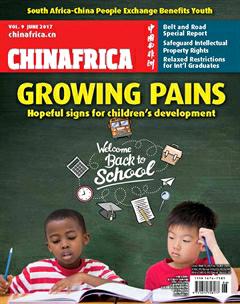Ebola Lessons Learned
THE Ebola virus has made another appearance on the African continent. The World Health Organization (WHO) announced on May 11 that they were informed about an outbreak of the virus by the Ministry of Health of the Democratic Republic of the Congo(DRC). At least nine people are suspected of being infected, and four have died as of May 21.
The Ebola virus disease is often fatal in humans, transmitted from wild animals and spread via human-to-human transmission. In 2014, the West African countries of Guinea, Sierra Leone and Liberia were at the center of the largest Ebola epidemic in history, resulting in 11,310 deaths, and now they have been Ebola-free since June 2016 according to the WHO.
By all accounts, there is a change in attitude and commitment to this outbreak from both the international community and the DRC itself. A review of 2014 has most observers agreeing on the fractured and slow way in which the crisis was handled. In addition, there were no vaccines available at that time.
After that, tests conducted in Guinea and published in the medical journal The Lancet in February 2016 showed that the interim assessment of the rVSV-ZEBOV vaccine offers substantial protection against Ebola. While the vaccine has yet to receive approval from the U.S. Food and Drug Administration, it could be used in an emergency outbreak. The WHO said it would decide on this usage, along with other key players, if and when deployment of the vaccine is warranted. An initial 300,000 doses of the vaccine were available in case of an emergency.
The WHO bore the brunt of international censure over its tardy response to the 2014 outbreak. Since that time it has put in place a Health Emergencies Program designed to assist countries affected to recover from such emergencies rapidly, through better preparation, prevention and response time.
So despite this outbreak causing jitters among the health community, the WHOs improved response in this case was evident. The organization used social media to disseminate the news as soon as it had been notified by the DRCs Ministry of Health and dispatched its Africa regional office chief Matshidiso Moeti to the countrys capital Kinshasa, with a team of WHO experts two days later. This team assisted in a countrywide campaign to engage with communities and maintain awareness about the virus, working with other key partners. In addition, as mentioned above, the use of the vaccine was discussed.
This positive and timely international response to a health crisis on the continent is encouraging and long overdue. Also crucial in this latest outbreak is the intervention of the Africa Centers for Disease Control and Prevention (Africa CDC). Based in Addis Ababa and launched in January, it is a collaboration between the African Union and African countries to improve the continents public health system, specifically in the post-2014 Ebola era. Africa CDC is supported by China and the United States.
John Nkengasong, Director of the Africa CDC said they have activated the Emergency Operation Center to closely monitor the situation and their team of experts would work with the DRC, the WHO and partners on the ground as required.
Learning lessons from the past and with all these partners pulling in the same direction, Africa stands a much better chance of dealing with health emergencies going forward.

